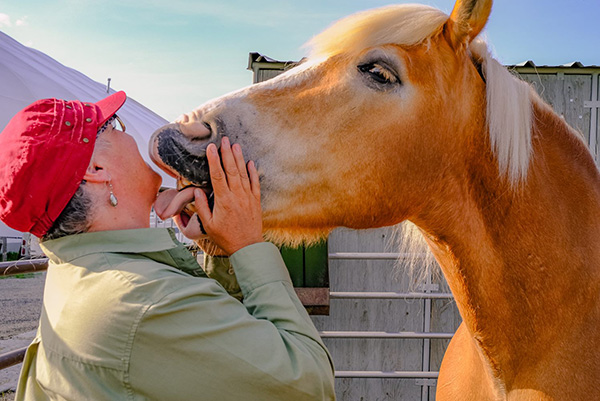Volunteer
Volunteers are a critical member of the WTRRA team. They provide support, confidence and encouragement to the participants helping to ensure that the lesson is safe and effective. They provide the smiles, the helping hand and the heart. There is a need for volunteers in all aspects the WTRRA organization. WTRRA provides training and mentoring for all roles and every role is important from Greeter to horse care to parades and special events. Horse experience is not necessary for most volunteer roles. Share your heart and your hands. Support the participants and enjoy the experience with the equines.
- Individuals must be at least 14 years old to participate as lesson volunteers
- Youth younger than 14 may volunteer, with supervision, in other aspects of the organization
- All volunteers must attend an annual volunteer orientation
Volunteer roles include:
Greeter
Gate Keeper
Side Walker
Horse Leader/escort
Barn Worker (several levels) Horse experience required for Level 2. Catching and tacking horses.
Horse Care
Facility maintenance
Click on option below for more description and photos
Volunteer Application
We are grateful for the volunteers that help make it all possible Will you join the team? Please download, complete and send us the volunteer application below. It can be mailed or dropped in the slot at the WTRRA office. Thank you for considering the giving your time!
We thrive with the generous donations from our donors.
Find out how you can help!
What is Therapeutic Riding?
Therapeutic Riding uses equine-assisted activities and therapies, EAAT,for the purpose of contributing positively to cognitive, physical, emotional and social well-being of people with disabilities and provides benefits in the areas of therapy, education, sport, recreation and leisure. Equine Assisted Activities and Therapies, encompasses a wide spectrum of services and interventions. Instructors and/or therapists working with a trained equine, teach horsemanship skills or provide a specific therapy. EAAT professionals rely on the support and assistance of volunteers to provide safe and effective services which address cognitive, emotional, social and/or behavioral skills, in addition, to many physical disabilities such as cerebral palsy, down syndrome, multiple sclerosis, paralysis, stroke and traumatic brain injury. Centers work with those with autism, attention deficit disorder, anxiety and depression. There are Centers that have targeted programs to help at-risk youth, veterans and military personnel, seniors with Alzheimer’s and victims of domestic and sexual abuse.
Learn more about Therapeutic Riding and EAAT
https://www.pathintl.org










